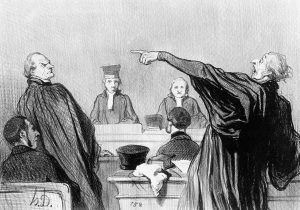Scholar Spotlights Role of Coretta Scott King in Her Husband’s Work
If you want to understand the full breadth of the legacy of Dr. Martin Luther King Jr., you need to appreciate two aspects that often don’t get the attention they deserve: The role of his wife, Coretta Scott King, as Martin Luther King’s partner in activism, and the importance both of them attached to the pursuit of social justice beyond a narrower definition of civil rights.
That was an overall theme of a lecture on Martin Luther King’s legacy at Eckstein Hall on Jan. 25 by Clayborne Carson, a history professor at Stanford University, director of the Martin Luther King Jr. Research and Education Institute, and one of the foremost experts on the King family’s work. Carson has authored several books about the civil rights era and, in 1985, was asked by Coretta Scott King to edit and publish authoritative editions of her husband’s speeches, sermons, and other writing. That led to seven volumes of the papers of King.

